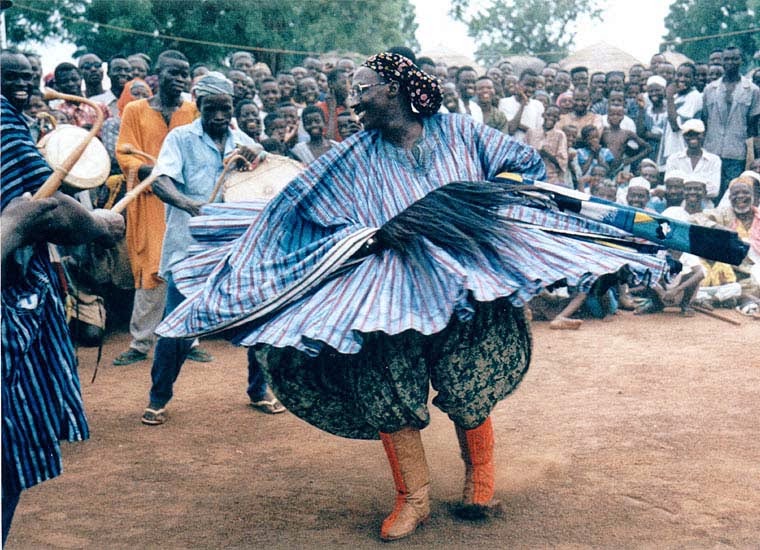
Exploring Ghana’s Cultural Heritage: A Living Tapestry of Diversity and Identity
By [letsdicover.com] [21st/May/2025]
Ghana's cultural heritage is more than just tradition—it's a living, breathing force that shapes the nation's identity, unites its people, and tells stories across generations. Rooted in the practices, beliefs, and artistry of over 70 ethnic groups, Ghana’s culture is a rich and dynamic tapestry woven with pride.
From the rhythmic beats of traditional drums to the vibrant patterns of Kente cloth, Ghana’s cultural landscape is both diverse and deeply meaningful. Here's a closer look at the many facets that make up this unique heritage:
1. Ethnic Diversity: The Heartbeat of Culture
Ghana is home to a mosaic of over 70 distinct ethnic groups, each with its own language, customs, and artistic traditions. Major groups like the Akan, Ewe, Ga-Adangme, Mole-Dagbon, and Guan contribute to the country’s colorful cultural identity. This rich diversity is most visible during traditional festivals, ceremonies, and artistic expressions that vary from region to region.
2. Traditional Music and Dance: The Soul of Celebration
Ghana’s musical landscape is a harmonious blend of the old and the new. Traditional rhythms, often centered on drums, bells, and flutes, play a central role in ceremonies and festivals. Each ethnic group has its signature style—such as the energetic Agbadza of the Ewe or the regal Adowa dance of the Akan.
Modern genres like highlife and hiplife have taken these traditions into contemporary spaces, creating a vibrant music scene that celebrates cultural evolution.
3. Art and Craftsmanship: Expressions of Identity
Ghana’s artistic heritage is renowned across Africa and beyond. Among its most iconic creations are:
- Kente Cloth: Woven with bold colors and geometric designs, symbolizing proverbs and values.
- Adinkra Cloth: Hand-stamped with meaningful symbols representing life concepts like strength, unity, and wisdom.
- Woodcarvings: From stools and masks to fertility dolls, these carry spiritual and historical significance.
- Pottery and Beadwork: Used in daily life and ceremonial practices, often reflecting local styles and beliefs.
These crafts are not just beautiful—they tell stories and preserve Ghanaian wisdom.
4. Historical Significance: A Bridge to the Past
Ghana’s past is etched into its landscapes. Historical sites like Cape Coast Castle and Elmina Castle bear solemn witness to the transatlantic slave trade. Meanwhile, Asante Traditional Buildings offer a glimpse into the architectural legacy of the powerful Ashanti Empire.
Colonial-era architecture in cities like Accra and Kumasi also tells a layered story of influence, resistance, and resilience.
5. Cultural Institutions: Guardians of Heritage
The Ghana Museums and Monuments Board (GMMB) plays a crucial role in preserving and promoting cultural heritage. Through initiatives like Heritage Month, GMMB brings Ghana’s history and traditions to life via exhibitions, tours, and educational programs.
These efforts ensure that future generations can connect with their cultural roots.
6. Core Values and Beliefs: The Foundation of Ghanaian Society
At the heart of Ghanaian culture lies a strong sense of community, respect for elders, and collective responsibility. Family bonds are deeply valued, and traditions emphasize moral conduct, humility, and mutual support.
These cultural values shape social behavior and help sustain harmony across diverse communities.
7. Celebration of Heritage: Festivals and Traditions
Throughout the year, Ghanaians celebrate their heritage through colorful festivals, including:
- Homowo (Ga people): Celebrating harvest and overcoming famine.
- Hogbetsotso (Ewe): Commemorating migration and freedom.
- Aboakyer (Fanti): Honoring ancestral bravery through deer hunting.
- Odwira (Akan): A cleansing and renewal ceremony.
Each festival is rich with music, dance, food, and symbolism—bringing communities together in joy and remembrance.
8. Iconic Cultural Expressions
Here are just a few standout symbols of Ghana’s cultural identity:
- Kente Cloth: Ceremonial fabric worn with pride and meaning.
- Adinkra Symbols: Visual representations of values like perseverance and unity.
- Asafo Flags: Vibrant military banners of the Fanti people, often with bold, metaphorical designs.
- Oral Storytelling: A powerful tool for teaching, entertaining, and preserving history.
- Traditional Dance and Music: Diverse forms linked to ancestry, rites of passage, and celebration.
A Heritage That Lives On
Ghana’s cultural heritage is not static—it’s dynamic and constantly evolving. As it adapts to modern influences, it retains its deep roots in tradition, community, and identity. Whether you're walking through the bustling markets of Kumasi or attending a traditional naming ceremony in Tamale, the spirit of Ghana’s culture is everywhere.
For Ghanaians, it is more than heritage—it is who they are.
Want to experience Ghana’s culture firsthand or learn more about its living traditions? Subscribe for updates and stories from across the country!
Key aspects of Ghana's cultural heritage include:
Material Cultural Heritage:
This includes physical artifacts like traditional buildings, monuments, and colonial-era structures. The Ghana Museums and Monuments Board (GMMB) plays a key role in preserving these sites.
Intangible Cultural Heritage:
This encompasses traditions, knowledge, folklore, and languages passed down through generations. Examples include traditional greetings, customs, and the importance of family and elders.
Historical Significance:
Ghana's history, including the transatlantic slave trade, is marked by significant sites like Elmina and Cape Coast Castles, which serve as reminders of the past.
Art and Craft:
Ghana is renowned for its vibrant art forms, including Kente cloth weaving, pottery, and beadmaking, reflecting a rich tradition of artistic expression.
Social Cohesion:
Communal living, respect for elders, and family obligations are deeply ingrained in Ghanaian culture, fostering a strong sense of community and social responsibility.
Diversity:
Ghana's cultural landscape is shaped by the presence of numerous ethnic groups, each with its unique traditions, languages, and custom




